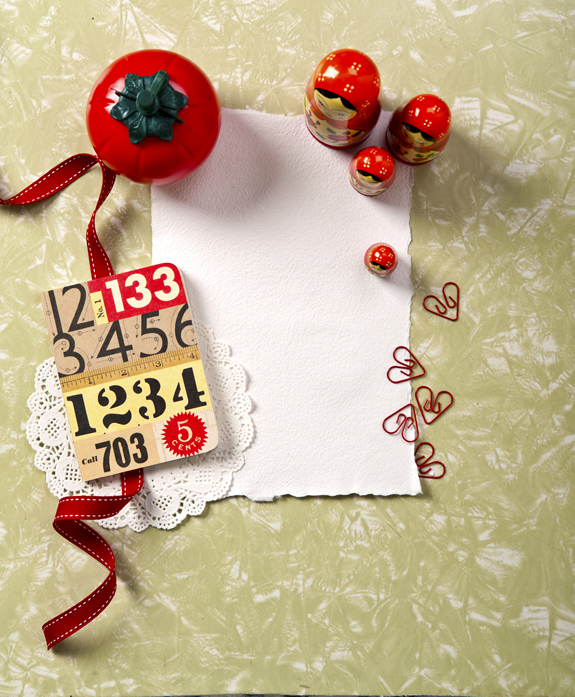Striking the right balance between a busy and a simple life isn’t necessarily about doing or having less. Here’s a personal plan to tip the scales more in your favour
Photography by Tony Brownjohn
Declutter your day
Routines matter. The things we do regularly don’t just define what our days look like, but who we become and even how we’re perceived by others.
If you’re consistently late you may be thought of as disorganised or lacking commitment, while those who exercise daily are considered active – even though some non gym-going types cram plenty of dashing about in a day!
It pays to be aware of your habits and to review them dispassionately from time to time. “You can change habits,” says Fiona Howard, University of Auckland senior tutor in clinical psychology. “But it does take time. You’re looking at months, not weeks, so the important thing is not to give up.”
Decluttering your daily routine gives you more time and energy to devote to change. But as anyone who’s made and abandoned New Year’s resolutions will know, we have limited capacity for self-control. So before you try adopting new daily habits, be kind to yourself, and first create space for them.
Do you spend mornings umming and ahhing over what to wear, or afternoons wondering what to cook for dinner? Surprisingly, it’s these small decisions which sap your energy – and clog up your mental space. Princeton University researchers found that the more choices you have to make, the faster ‘decision fatigue’ sets in – that’s when you can’t deal with weighing up options any longer and simply take the easiest one, whether it’s good for you or not.
Once decision fatigue takes over, not only is your ability to make choices compromised, but your willpower is weakened, leaving you with little patience and motivation overall.
The good news is that the more choices you make in advance – the more routines you put into place – the more mental space you’ll enjoy in your unstructured hours. The idea of structured habits might seem stifling, but the right routines can in fact be liberating – freeing the more creative parts of your brain from tedious and potentially distracting decisions about when to get up, what to have for lunch or when to do the washing.
Try devoting a bit of time on Saturday or Sunday afternoon planning what you’ll have for dinner each night of the coming week, and shop accordingly. Then the job’s half done – plus you’ll avoid superfluous purchases or aimless wandering in supermarket aisles. Likewise, you might decide that Saturday morning is when you clean the house, Mondays are DVD nights and Thursday evening is for spending dedicated time with family or friends. When these choices are made ahead of time, you won’t get stuck mulling over options.
Make time to learn a new skill if necessary. It might take a while to find a good organisational app on your cellphone rather than jotting to-do lists on loose scraps of paper, but it could save plenty of time in the long run. If you don’t know how to do something it will seem complicated, but take heart – there was a time when reading and writing was difficult. Learning is a necessity for a simpler existence: the more we understand, the simpler life becomes.

Are your systems too complicated?
Take a good hard look at your routines and consider if there’s a simpler way. Don’t try to change everything at once – habits are more likely to stick if you take them one at a time.
Bills: If you leave bills unopened or scattered around the house, designate a place for them near the front door. Try a side table with an envelope opener, a tray and a calendar on the wall.
As you receive bills, write the amount on the appropriate day of the month, and put the bill in the tray for when you have your monthly financial meeting.Or, if it suits you better, stockpile your bills and and open everything on a set weekly admin night.
Email: Checking messages every time one comes through is distracting. Worse, if you’re in the middle of something else, you may not have time to reply straight away and forget you’ve received important messages. Turn off email notifications and check your inbox at designated times. Read them one by one and either reply and take action immediately, or put it on a to-do list so it’s not forgotten. If you have a smart phone, don’t open emails until you’re able to follow up.
Laundry: Buy separate laundry baskets for different categories of clothing – whites, darks, delicates. This saves you sorting through them later. Show your kids which basket is which, and chuck your clothes in as soon as they need a wash.
Groceries: Keep a running grocery list on the fridge or on your phone. When you run out of something, add it to the list. Then before you head to the supermarket, make your meal plan and add anything else you need to the list. If you plan ahead, you’re less likely to forget things and make a dash to the shops in the pre-dinner rush.
What matters?
Figuring out what’s really important to you – and what you truly love – is the next step in simplifying your life. Being clear about the things you enjoy – and the things you don’t – is the first step in cutting out what leaves you unfulfilled and investing more time in what really matters.
Identifying what matters to you is easier said than done. Don’t be swayed by what you think you should value, warns Auckland life coach Zoe Dryden. “Nobody can tell you what’s important, because it’s different for everyone,” she says. You may wish you valued change or taking risks, but don’t try to live this way purely for the sake of it – maybe you’re truly happier with routine and a low-stress lifestyle.“We can all set goals – but if we don’t follow our values in pursuit of those goals, we won’t feel satisfied when we get there.”
Putting this concept into practice, Zoe founded the Second Base programme (www.second-base.org) which places business leaders into homestays with families from remote, impoverished, rural communities around the world.
The experience of being totally out of their comfort zone kickstarts the process of identifying what’s important to these people and they return to their everyday lives with a new vision.
But a week on the other side of the world isn’t necessary in order to re-evaluate our lives – if we’re creative there will be ways available to us to pause and take stock.
When you know what’s important and live accordingly, it becomes an upward spiral. Time invested in activities that thrill or nourish you can return back multiplied in the form of new energy and inspiration.
It can be tempting to wait for the right moment to live by your values. Surely it would be easier if you had more money, more time, or the kids were older? But the perfect place to start is wherever you are now. “While it can be harder to live consistently with your values when times are tough, it’s often not as hard as you think, and the benefits are huge. Productivity goes up and stress goes down,” says Zoe.

Figuring out what’s important to you:
Write down a few key values that you want to live by. Start with a blank page and brainstorm ideas freely, then go back and circle the ones you feel the most resonance with. How might they apply to different areas of your life?
Think about your longterm goals. What would your dreams coming true look like – owning your own home? A baby? Spending more time with your loved ones? Jetting off to exotic places? A promotion or change of career?
Now consider what already fills your life. Which of these people, places, activities, experiences and possessions are most important to you? What do you want more of, and what would you like to spend more time on?
Ideally, these activities should align with your values and help you achieve your goals. For instance, if you value achievement and getting a promotion is your highest goal, it would be counterproductive to aim to take up extra hobbies or spend more time relaxing.
Make a list of things that aren’t so important to you. What do you want to take up less of your money and time? It can be freeing to accept that, say, a flash car isn’t important to you but a gorgeous dining room that begs for dinner parties is. Keep in mind that it’s not all or nothing – perhaps you want to spend less on clothes by purchasing fewer but higher quality garments that work well together, or you might pinpoint a certain television show that you truly enjoy and cut out mindless channel surfing.
If you have a partner, involve them! You may have decided that smart wheels are off your wishlist, but that might be news to your car-conscious partner.
Affording what you want
Being financially stable doesn’t have to mean feeling deprived, says Auckland financial counsellor Jill Porter. “It doesn’t matter what you spend it on – just that you have enough money to do what you want to do.” One challenge is that as with food, people have a tendancy to “use money to soothe themselves”, she says.
It doesn’t help that money management is an emotional task, says Hannah McQueen, founder of financial coaching service Enable Me and author of The Perfect Balance: How to Get Ahead Financially and Still Have a Life. “It’s not difficult to manage your finances, but people find it hard because of their relationship with money.” For some, making a purchase is a thrill, while others feel excited watching their savings grow, she says.
Hannah says we can easily fritter away about 15 percent of our income on things that don’t make us happy. “I used to think I had to have a $60 brunch with my family at the waterfront every Saturday,” she says. “I loved it. Then I tried breakfast at home and going for coffee on the waterfront instead. It turned out I was just as happy with the cheaper option.”
Don’t let others’ goals and desires dictate yours, says financial expert Lisa Dudson. “It’s common to have too much focus on keeping up with the Joneses. People buy a lot of stuff without considering whether they need or want it – there’s not a lot of conscious thinking going on.”
Unsure what to drop? Choose a likely candidate and go without it for a while, suggests Hannah. If you truly miss it, there’s no need to give it up permanently. But you may find you feel no different – or that directing the cash towards something else brings greater satisfaction. Getting your financial ducks in a row is about making small, positive choices that compound over time. “People worry they’ll have to learn about complicated investments to get ahead,” says Lisa. “But it’s the little things that make a big difference – the good choices that you make daily or weekly.”
The key is to be honest with yourself so you know what needs to change. “People avoid talking or thinking about money and bury their heads in the sand,” says Hannah. “It’s important to have an honest look at where you are financially.” It needn’t be complicated – a simple list of what you earn, what you spend and what you owe will do.
If working out where your money goes sounds overwhelming, turn it into an enjoyable routine. Decide that Tuesday night is admin night – time to open the bills and do a tally up. Put music on in the background, make a pot of green tea or pour a glass of red wine. If you track your money regularly, you won’t be scared to log in to your bank account.
Jill recommends committing to a monthly financial meeting with yourself or your partner. “Mentally speaking, there’s a natural break each month – the feeling that you can start afresh. And if you sit down weekly to work out your spending, you could end up putting in more time and effort than you need to. The simpler you can make it, the easier it is to stick to.”

This way to happiness …
Try these seven easy contentment-boosting rituals:
1 At the beginning of the week, make a routine of listing your goals for the next seven days, and read them each morning for extra motivation.
2 Block out time in your schedule for something you love, such as reading, arts and crafts, writing in a journal, or gardening.
3 Take a few minutes each morning or evening to stretch.
4 Savour something you might normally rush – a delicious meal, a walk in the sunshine, the smell of a spring blossom. Take it slowly and let yourself luxuriate in the pleasure of the activity.
5 Over dinner or while relaxing in the evening, ask your partner or kids about one good thing from their day. While you may simply get a shrug and a grunt if you ask the moment they walk in the door, they’re more likely to be in the mood to chat if they’ve had time to unwind.
6 Extend a heartfelt thank-you to someone who has made your day easier – research shows that gratitude has been shown to increase happiness.
7 Sneak into your kids’ bedrooms when they’re asleep and spend a minute watching them – or step outside and look for the Southern Cross in the night sky.
Where’s your money going?
If disorganisation is burning a hole in your pocket, here’s how to get your finances in order:
1 Look at last month’s bank statements online, or if you don’t use internet banking, keep your receipts or write down everything you spend over a month. Compare your spending to your income – what’s left? If it’s little or nothing, or you’re just not saving much, highlight purchases you could do without next month.
2 List any debt you owe, including student loans and mortgages. Note down the interest rate for each, and the minimum repayment. Use this information to work out how long it’ll take you to clear the debt, and how much interest you’ll pay – try the easy calculators at www.sorted.org.nz
3 Simplify your credit cards – do you really need more than one? If you have a string of cards and are losing track of repayments, consolidate your debt into one loan with a low interest rate, and get rid of extra credit cards. If you find credit cards hard to manage, switch to a debit card so you’re only spending money you already have.
4 If you have multiple bank accounts, you might be paying more fees than necessary. It’s a good idea to have separate saving and spending accounts, but check whether your bank can offer you a better deal. Some fees can be wiped altogether if you choose to receive your statements online rather than on paper.
5 Make a list of savings targets. Most experts recommend having an emergency fund of at least three months’ pay, and setting aside ten percent of your income every pay day. How much do you want to save for important goals, such as a holiday, renovation job or a home deposit? If it’s important to you, it might be worth hustling for a period of time to reach your goal faster – such as living somewhere cheaper while you get a house deposit together. When you know how much you want to save each pay day, set it up as an automatic payment into your savings account so you’re not tempted to spend it.
6 Check your insurance policies. Don’t just go with what you’ve always done – question it. Do you still have everything you’re insured for? Does it cover what it needs to?
7 How frequently do you pay your car insurance and registration? Handing over a lump sum annually usually means you’ll save money, plus it’s a weight off your mind – but you’ll need to budget to ensure the money is there when you really need it.
Sell, swap and share
Cast your eye around your house for anything you no longer need that might be sold online. This has the double bonus of clearing clutter and generating spare cash.
Is there something you are paying for (such as babysitting) you can swap for instead?
Can the kids double up to create a spare room you can rent to a student? Homestays vary from several weeks to a number of months and enrich your home life as well as your wallet.







